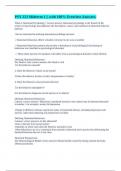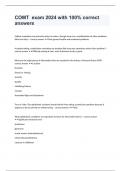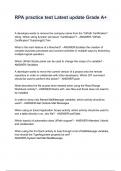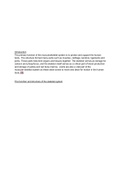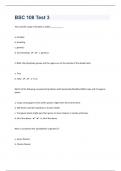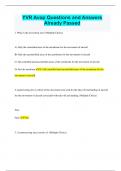Tentamen (uitwerkingen)
PSY 223 Midterm 1 || with 100% Errorless Answers.
- Vak
- Instelling
What is Abnormal Psychology ? correct answers Abnormal psychology is the branch of the science of psychology that addresses the description, causes, and treatment of abnormal behavior patterns: -We are interested in studying abnormal psychology because: ->Abnormal behaviour affects virtua...
[Meer zien]
